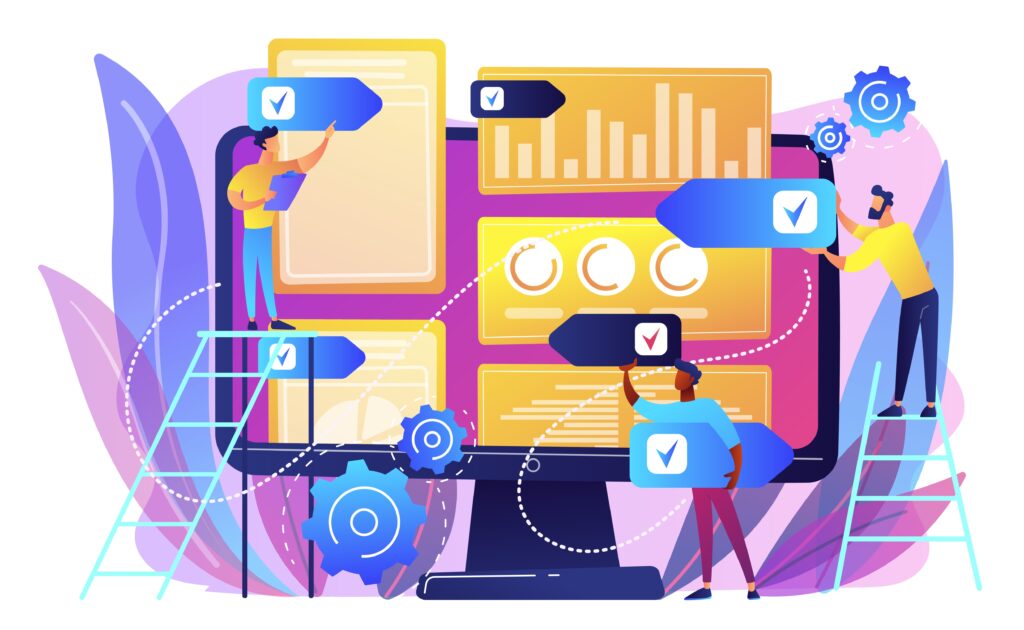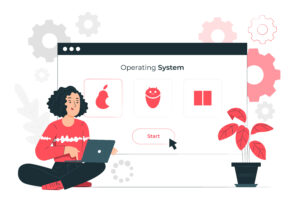So yes, businesses are constantly seeking ways to streamline their operations and enhance the customer experience. One term that has gained significant prominence in the world of commerce is “omnichannel.” In this article, we will delve into the world of omnichannel software, exploring what it is, why it matters, and how it can revolutionize your business within the realm of omnichannel commerce.
Understanding “What is Omnichannel Commerce Software?”
Before we dive into the specifics of omnichannel solutions, let’s first grasp the concept of omnichannel commerce. Omnichannel commerce is an approach that seamlessly integrates various sales channels to provide customers with a unified shopping experience. These channels can include physical stores, e-commerce websites, mobile apps, social media, and more. The core idea is to break down the silos between different channels, allowing customers to interact with your brand consistently and conveniently.
Omnichannel commerce acknowledges that consumers no longer follow a linear path to purchasing. They might research products on their smartphones, visit a physical store to try them out, and then make the final purchase online. To effectively cater to such diverse customer journeys, businesses need robust omnichannel solutions, and that’s where omnichannel technology comes into play.
What is Omnichannel Software?
Omnichannel software is the technological backbone of omnichannel commerce. It is a suite of tools and platforms designed to facilitate a seamless and integrated shopping experience across various channels. Here are the key components and functionalities that make up omnichannel software packages:
1. Centralized Inventory Management
One of the fundamental features of an omnichannel platform is its ability to provide a centralized view of inventory. This means that whether a product is in a physical store, a warehouse, or available online, the software keeps track of it in real time. This prevents common issues like overselling and ensures that customers always have access to accurate stock information.
2. Unified Customer Profiles
Omnichannel software creates unified customer profiles by aggregating data from different touchpoints. This allows businesses to gain a 360-degree view of each customer, including their purchase history, preferences, and browsing behavior. Armed with this information, businesses can offer personalized recommendations and targeted marketing, enhancing the overall customer experience.
3. Seamless Order Fulfillment
Efficient order fulfillment is a critical aspect of omnichannel commerce. Omnichannel technology automates the order fulfillment process, routing orders to the nearest warehouse or store for quick delivery. It can also enable options like buy online, pick up in-store (BOPIS), and ship-from-store, giving customers more choices and convenience.
4. Integrated Marketing and Analytics
Omnichannel software often includes marketing and analytics tools that help businesses track the performance of their omnichannel campaigns. This data-driven approach allows for better decision-making, as businesses can see which channels are driving the most conversions and adjust their strategies accordingly.
Why Do Omni-channel Solutions Matter?
Now that we have a clear understanding of what omnichannel software is, let’s explore why it matters in the world of commerce.
1. Enhanced Customer Experience
Omnichannel software is all about improving the customer experience. By providing a consistent and personalized shopping journey, businesses can build stronger customer relationships and foster brand loyalty.
2. Increased Sales and Revenue
A seamless shopping experience encourages customers to spend more. When they can easily find products, access real-time stock information, and receive personalized recommendations, they are more likely to make a purchase.
3. Improved Operational Efficiency
Omnichannel software streamlines operations by automating tasks such as inventory management and order fulfillment. This not only reduces errors but also frees up employees to focus on more strategic tasks.
4. Data-Driven Decision-Making
With comprehensive data and analytics at their fingertips, businesses can make informed decisions about their omnichannel strategies. They can allocate resources to the most effective channels and tailor marketing efforts to customer preferences.
Choosing the Right Omnichannel Platform
Selecting the right omnichannel software for your business is crucial. Here are some factors to consider:
1. Scalability
Ensure that the software can scale with your business as it grows. You don’t want to outgrow your solution in a year.
2. Integration Capabilities
Check if the software can seamlessly integrate with your existing systems, such as your e-commerce platform and POS systems.
3. User-Friendliness
A user-friendly interface is essential, as it will be used by your employees daily.
4. Support and Training
Consider the level of support and training offered by the software provider. Adequate support can be a lifesaver when issues arise.
Conclusion
In the dynamic world of commerce, where customer expectations are ever-evolving, embracing omnichannel software is no longer an option but a necessity. It empowers businesses to provide a consistent, personalized, and convenient shopping experience, ultimately leading to increased sales, improved customer loyalty with loyalty programs, and operational efficiency. As you embark on your omnichannel journey, remember that choosing the right omnichannel software is a critical step toward success in the modern marketplace.





